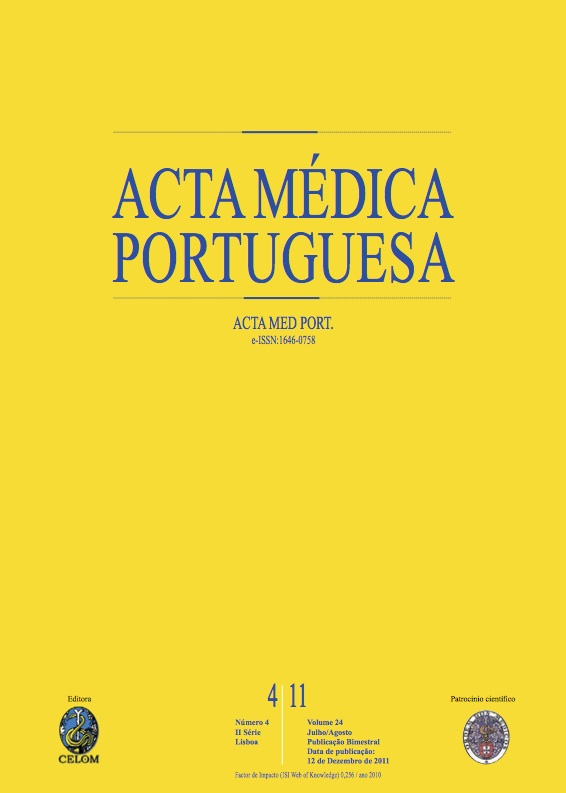The Institute of Anatomy in the centenary of the Medical Faculty of Lisbon University.
DOI:
https://doi.org/10.20344/amp.469Abstract
The authors join the celebrations of the Centenary of the establishment of the Faculdade de Medicina da Universidade de Lisboa, on the 22(nd) April 2011, through the historical account of one of its main pilasters, the Institute of Anatomy. It is discussed the scope of its creation at the time, the important work done, the presence and participation in major international evolutionary landmarks in Anatomy, current thinking and action, and the measures implemented to prepare the incoming medical generations. Finally it will be presented the challenges for the 21st century and the strategies to overcome them, which includes the development of the Institute of Anatomy at the Medical Faculty of Lisbon University, in order to create a major pedagogic-scientific study space, for teaching and research of human normal morphology, above all in vivo aspects more applied, the clinic and imaging pre- and post-graduate. There is a world of morphological investigations, basic and clinical, to be held, involving teachers, students, and even doctors and surgeons, with the privileged scientific and research support from the Institute of Anatomy of the Faculdade de Medicina da Universidade de Lisboa!Downloads
Downloads
How to Cite
Issue
Section
License
All the articles published in the AMP are open access and comply with the requirements of funding agencies or academic institutions. The AMP is governed by the terms of the Creative Commons ‘Attribution – Non-Commercial Use - (CC-BY-NC)’ license, regarding the use by third parties.
It is the author’s responsibility to obtain approval for the reproduction of figures, tables, etc. from other publications.
Upon acceptance of an article for publication, the authors will be asked to complete the ICMJE “Copyright Liability and Copyright Sharing Statement “(http://www.actamedicaportuguesa.com/info/AMP-NormasPublicacao.pdf) and the “Declaration of Potential Conflicts of Interest” (http:// www.icmje.org/conflicts-of-interest). An e-mail will be sent to the corresponding author to acknowledge receipt of the manuscript.
After publication, the authors are authorised to make their articles available in repositories of their institutions of origin, as long as they always mention where they were published and according to the Creative Commons license.









